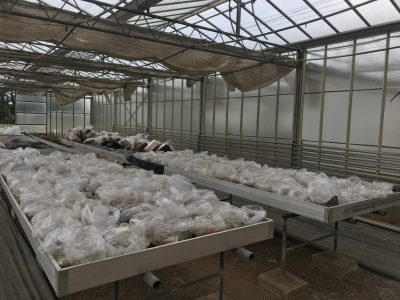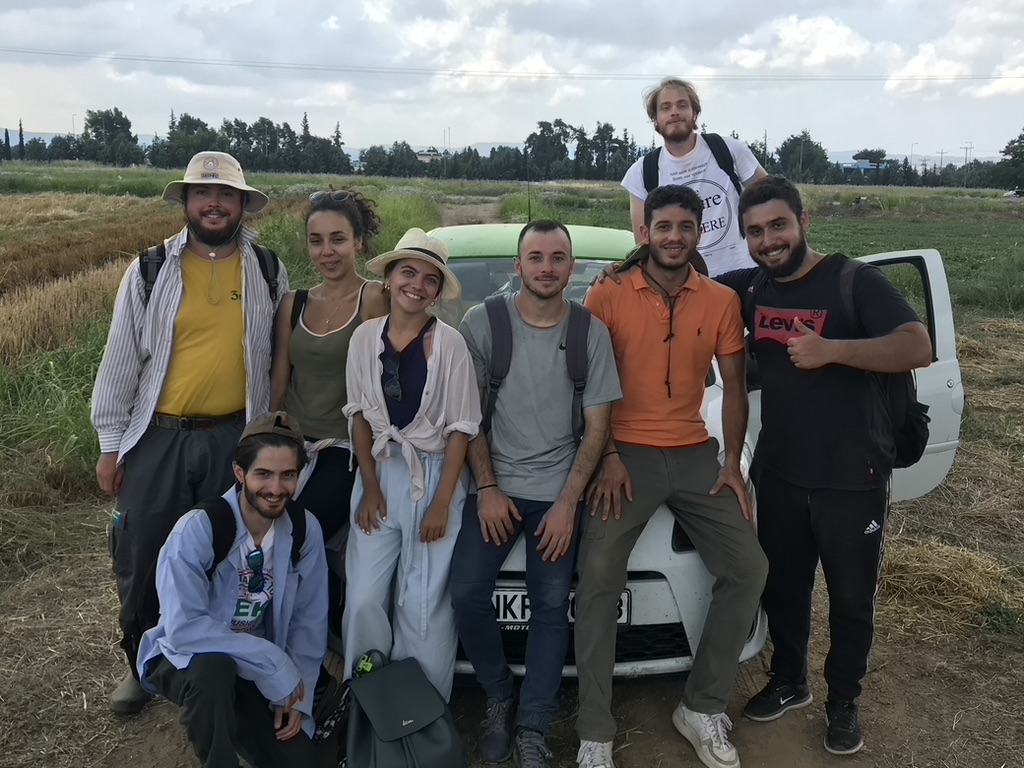
The second harvest of the experimental barley cultivation that the GIAP group has in Thermi (Greece) comes to its end with remarkable success, gaining optimal and healthy material to work with in the coming months.
It has been a long, hard, and yet particularly rewarding month of manual harvesting tasks in experimental barley cultivation in Thermi (Greece), within the framework of a project led by GIAP researcher Alexandra Livarda. Now, this second harvest has come to its end and the work has been achieved successfully and with good results (in terms of volume and quality of grain harvested).
The weather instability throughout the critical months of the plants’ development, combined with the sudden and heavy rainfalls that occurred at the beginning of July, meant that the Dark Revisited team had to be particularly flexible and efficient with the harvest this year.
The support received from a group of agronomy students from the Greek International Hellenic University (IHU) has been crucial. They joined forces with the team to speed up the harvesting and threshing of experimental barley crops just a few minutes before a major storm hit the area!
PhD GIAP researcher Alexandra Kriti wants to thank all actors involved, but especially the IHU agronomy students Nektarios Theophanous, Solonas Samiotis, and Alexandros Nousis for their hard work and resilience. Let’s wish them the best of luck in their future endeavours!

All in all, we are proud and happy about the success of the harvest and we congratulate the entire team and the people who have been involved! Now all eyes are on the next phase of the project: the measurements and analysis of this year’s harvested grains.
The “Dark Revisited” project started the innovative experimental cultivations in 2020 at the ELGO Demeter facilities in Thermi (Thessaloniki, Greece). The main objective of the project (which can be found on the ICAC website) is to scan and measure thousands of barley seeds of known varieties and combine them with different types of cultivation, in order to develop an algorithm to infer results about past agriculture from archaeological material (ancient seeds) found at archaeological sites in Greece.
This will be an important step forward for the discipline of Archaeobotany, as it will provide new insights into how economic decisions were made in the past. At the same time, experimental cultivation involves the monitoring of traditional barley varieties (varieties developed before industrialisation) which provides us with a fascinating and detailed level of information on the performance of these varieties and their nutritional value.
The results of the project could contribute to present-day agronomic decision-making, as well as to the possible introduction of new varieties of crops that give better results and guarantee food security in our times, which are becoming increasingly difficult for the proliferation of monocultures and the associated risks they entail.
This research is funded by the project The Aegean ‘Dark Ages’ revisited: a novel approach to old debates on agricultural economy and food culture – DarkRevisited (R&D&I project PID2019-107605GB-100, Spanish Ministry of Science, Innovation, and Universities) and the Ramón y Cajal programme (RYC-2017-22105, Agencia Estatal de Investigación) of GIAP researcher Alexandra Livarda.





